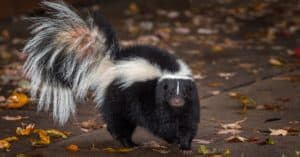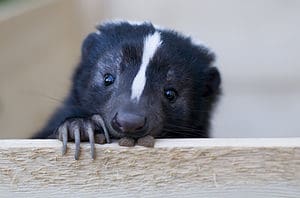Skunks are prevalent animals, commonly inhabiting local gardens and backyards. While intriguing creatures to observe from afar, they can also be bothersome and pose a risk to humans and pets by releasing a potent and unpleasant scent. Therefore, knowing safe and natural methods to deter them from your property may be beneficial. In this article, we discuss natural smells skunks hate.
About Skunks
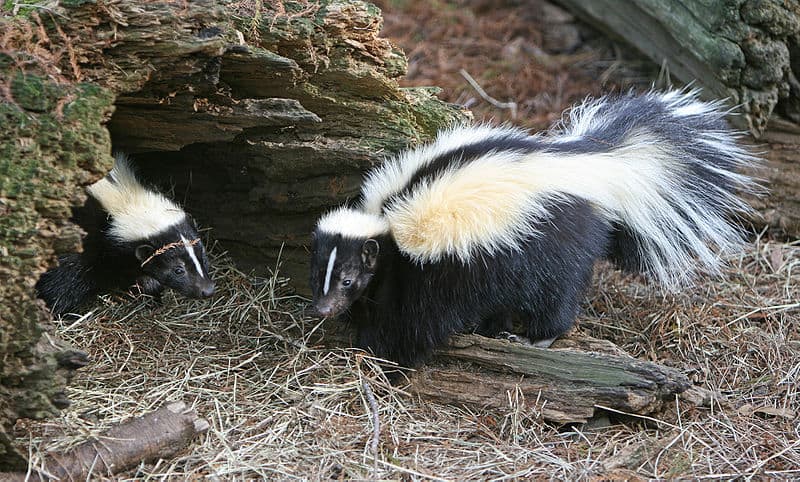
Skunks inhabit diverse environments, such as forests, fields, and suburban areas, and are mainly nocturnal and solitary.
Skunks are renowned for their striking black-and-white markings and their unpleasant scent. They are primarily found in North and South America. Four skunk species inhabit North America: the striped, hooded, spotted, and hog-nosed skunks. They can reach up to 32 inches in length and weigh up to 13 pounds.
With sharp claws, a tapered snout, and robust legs, they can efficiently dig for sustenance and burrow into dens. As they are omnivorous, skunks often consume insects, small creatures, fruits, and vegetables. They inhabit diverse environments, such as forests, fields, and suburban areas, and are mainly nocturnal and solitary. However, they may congregate in groups during winter for warmth.
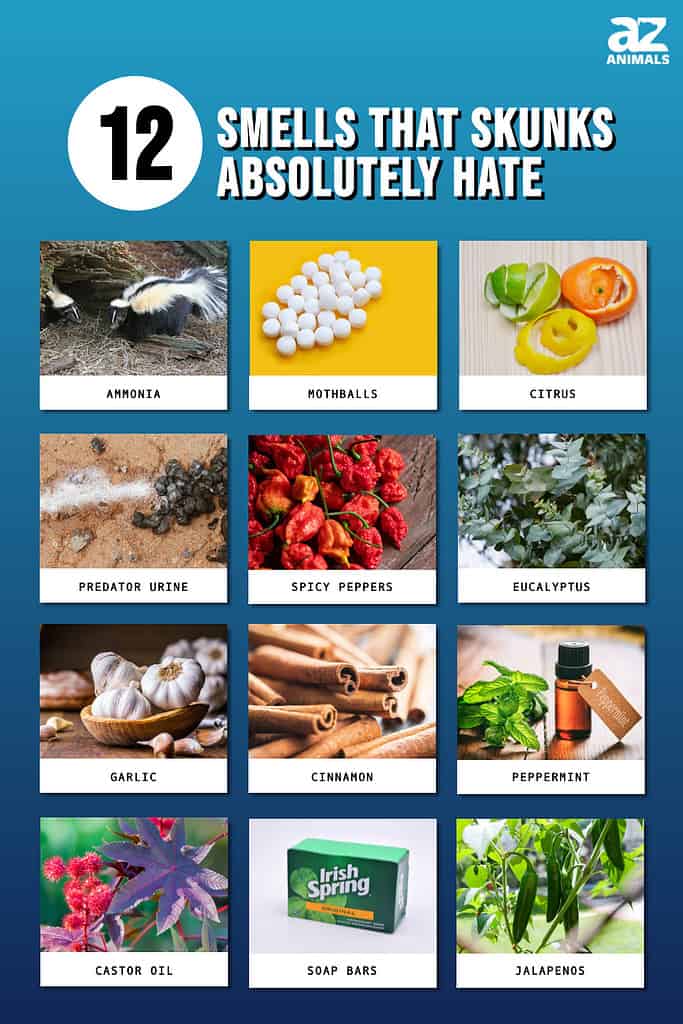
Why Don’t You Want Skunks?
Skunks can be destructive, and their digging habits can harm lawns and gardens. They are also carriers of diseases like rabies, potentially transmitting them to humans and other animals via bites. Nevertheless, people primarily want to evade skunks in their gardens or backyards due to their ability to emit a powerful, malodorous liquid. Skunks can discharge this liquid up to 15 feet, and the odor can persist for days, making it difficult to eliminate. This spray can also irritate the eyes and skin, causing discomfort for humans and pets.
One approach to discourage skunks from your garden is to repel them with scents instead of chemicals. However, as a quick note: It’s best to acknowledge that while these fragrances might efficiently discourage skunks from your yard, their effectiveness can vary depending on the context and specific conditions. In instances of particularly troublesome or extensive skunk invasions, it might be best to seek the guidance and intervention of a reputable pest control agency. Additionally, it is essential to exercise diligence and care when employing these odors, as their consumption or inhalation could lead to detrimental consequences for household pets and young ones. Continually monitoring the situation and adapting your strategy as needed will help ensure your property remains free from skunk-related damage.
Here are 12 aromas that skunks hate:
Ammonia
Skunks possess a highly sensitive sense of smell, and ammonia’s pungent odor can irritate their nostrils and eyes. Ammonia, a colorless gas with a robust aroma, is often used as an ingredient in cleaning products. It may effectively ward off skunks and other wildlife from your garden or yard.
To employ ammonia as a skunk deterrent, soak a cloth or cotton balls in the liquid and place them strategically around your property. Ensure they remain out of children’s and pets’ reach. You can also mix ammonia with water and spray it around your yard’s perimeter, concentrating on areas where skunks may enter.
Exercise caution with ammonia, as it can be harmful if ingested or inhaled. Always wear gloves and a mask when handling it and adhere to the manufacturer’s guidelines for safe usage.
Mothballs

If ingested, mothballs are toxic, so keep them away from children and pets.
©Bowonpat Sakaew/Shutterstock.com
Mothballs, small spheres of chemical pesticide, are typically used to repel moths and other insects within the home. They also emit a potent, unpleasant smell that can deter skunks and other wildlife.
To utilize mothballs as a skunk repellent, place them in a container and position them in areas where skunks commonly enter, such as under porches or near garbage bins. If ingested, mothballs are toxic, so keep them away from children and pets.
Citrus
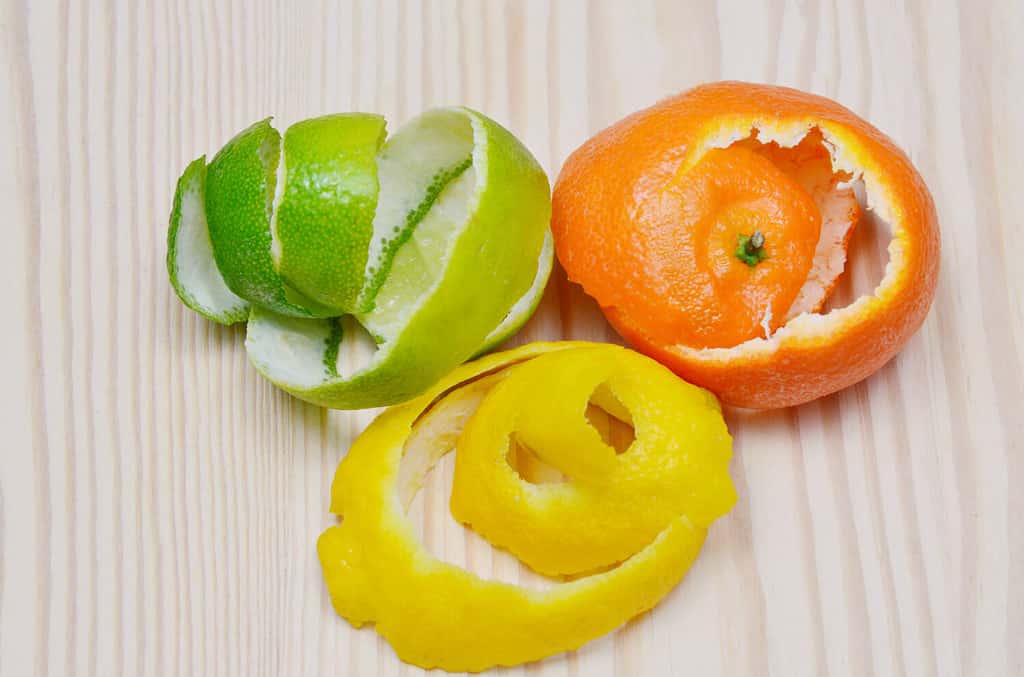
Citrus is a natural and safe method to repel skunks from your garden or yard.
©PosiNote/Shutterstock.com
Skunks dislike the intense scent of citrus fruits like oranges and lemons. This means that citrus is a natural and safe method to repel skunks from your garden or yard.
Place citrus peels around your garden or yard to use as skunk deterrents. Alternatively, create a citrus spray by mixing water and citrus juice or peels, then spray it around your property’s perimeter. This forms a scent barrier that skunks are less likely to breach.
Predator Urine
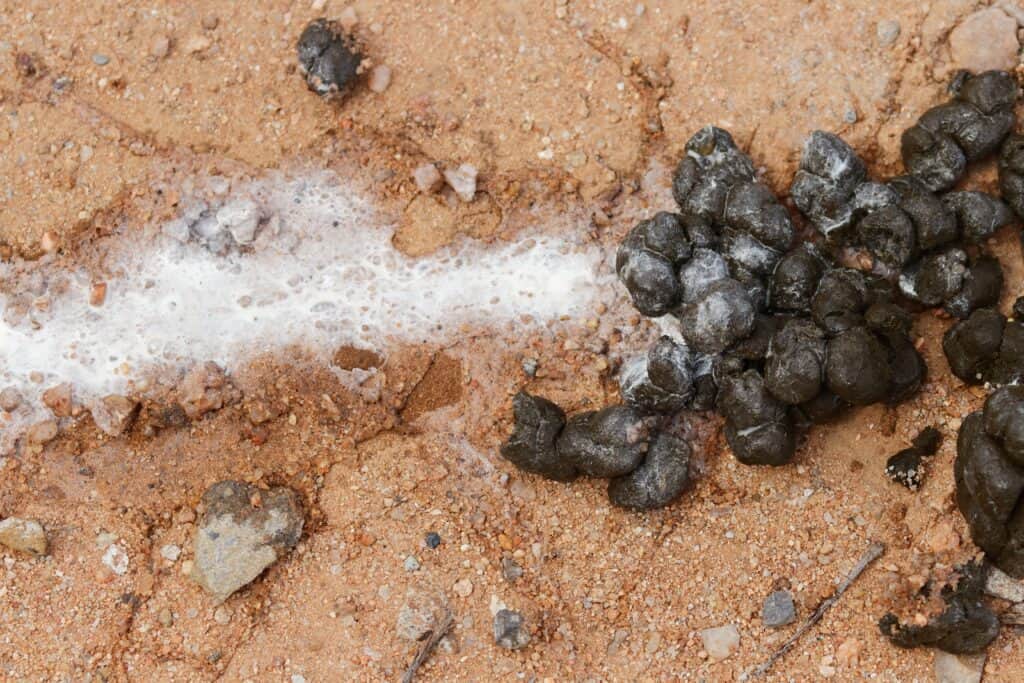
If you have a dog or cat, allowing them to use your yard for bathroom breaks may naturally deter skunks from your property.
©Beate Wolter/Shutterstock.com
Skunks, as prey animals, are frightened by the scent of predator urine. This substance can be purchased at outdoor supply stores and serves as an efficient skunk repellent.
To employ predator urine as a skunk discouragement, spray it around your home or garden’s exterior. Additionally, if you have a dog or cat, allowing them to use your yard for bathroom breaks may naturally deter skunks from your property.
Spicy Peppers
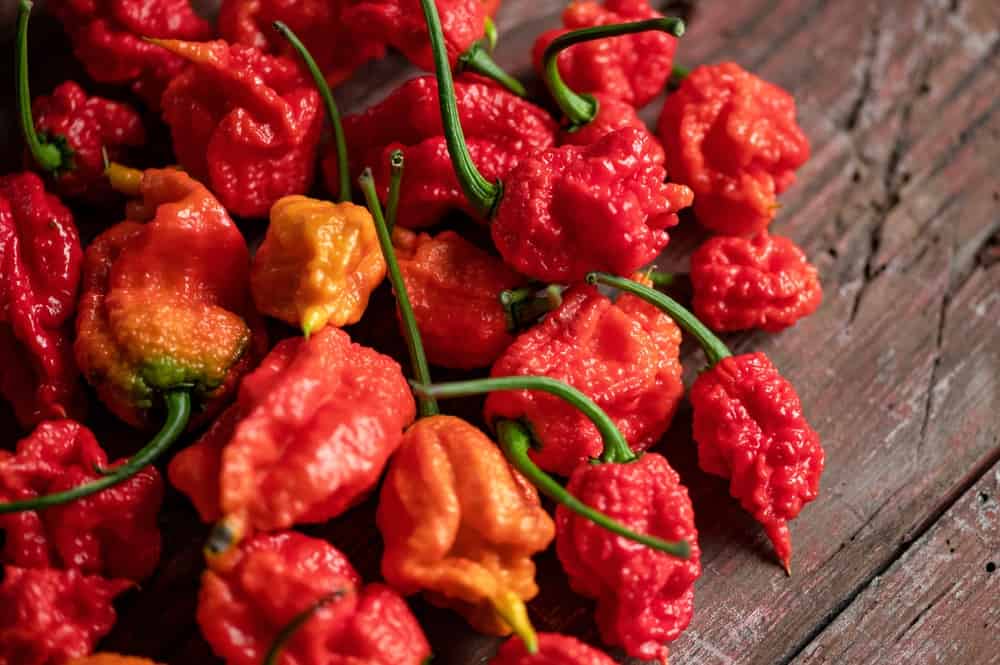
Plant hot peppers in your garden to establish a natural barrier skunks will likely avoid.
©artgray/Shutterstock.com
Skunks find the aroma and flavor of spicy peppers off-putting. Capsaicin, which provides peppers their heat, is a potent natural skunk repellent.
To use spicy peppers as a skunk deterrent, create a pepper spray by blending hot pepper powder with water, then mist it around your garden or yard. Alternatively, plant hot peppers in your garden to establish a natural barrier skunks will likely avoid.
Eucalyptus
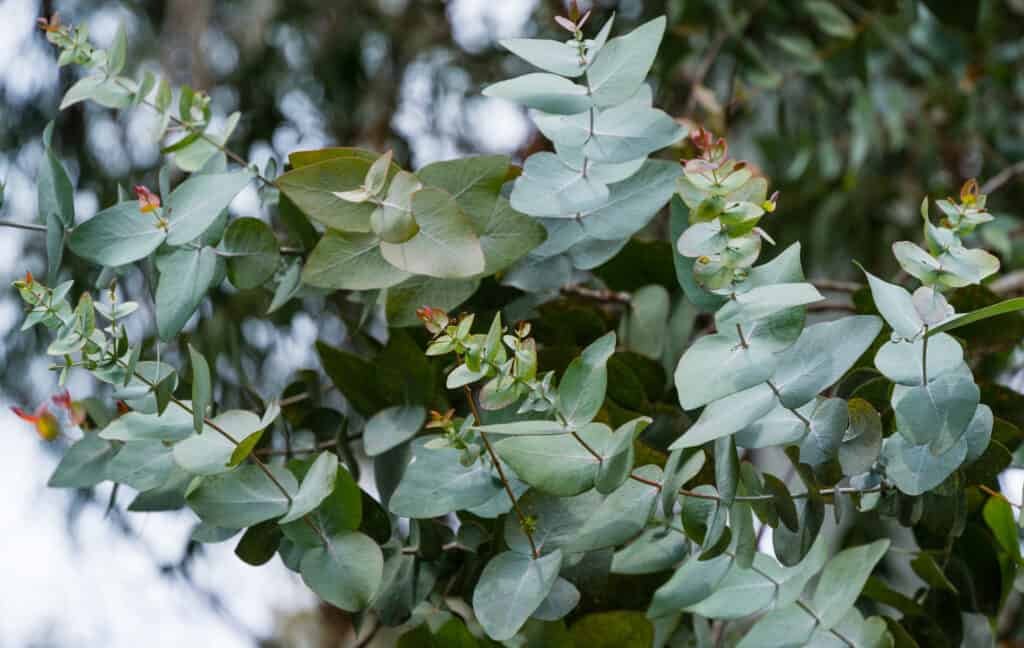
Soak cotton balls in the oil and position them throughout your garden or yard to employ eucalyptus oil as a skunk deterrent.
©iStock.com/Marina Denisenko
Skunks detest the strong fragrance of eucalyptus, a tree species indigenous to Australia. Eucalyptus oil functions as a powerful natural skunk repellent.
Soak cotton balls in the oil and position them throughout your garden or yard to employ eucalyptus oil as a skunk deterrent. Additionally, you can mix eucalyptus oil with water and spray it around your property’s perimeter.
Garlic
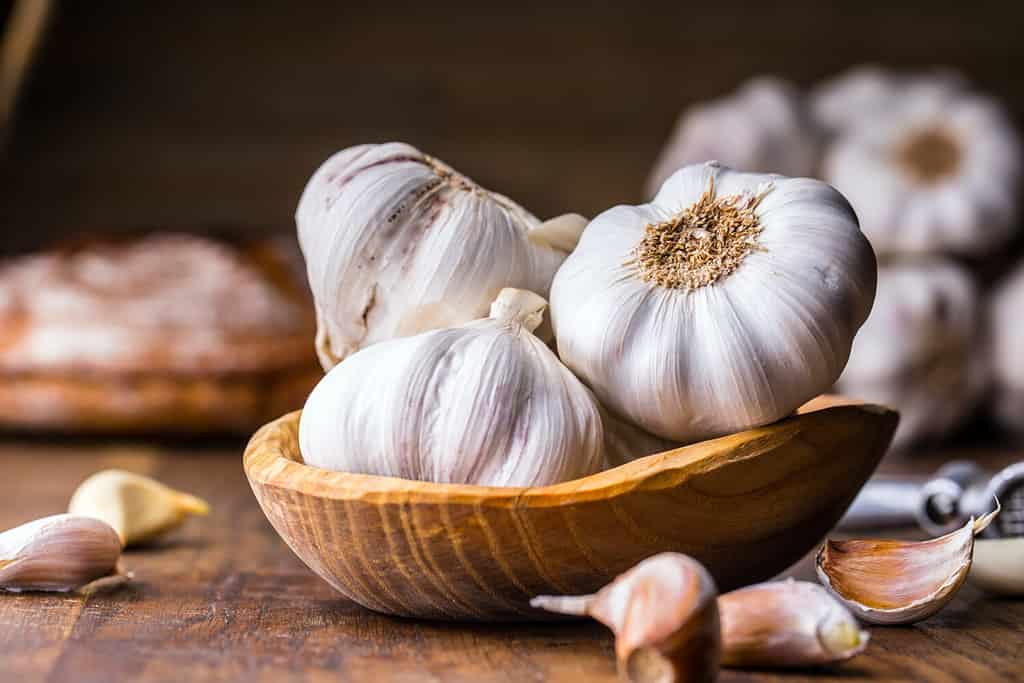
Create a garlic spray by blending or boiling garlic with water and spraying it around your property’s perimeter
©Marian Weyo/Shutterstock.com
Skunks possess a keen sense of smell, and garlic’s pungent aroma can be overpowering for them. Garlic’s sulfuric compound lends it a potent scent, making it an effective natural skunk repellent.
To use garlic, slice fresh garlic cloves and scatter them around your garden or yard. Alternatively, create a garlic spray by blending or boiling garlic with water and spraying it around your property’s perimeter. Remember to reapply the spray after heavy rainfall or if it gets washed away.
Cinnamon
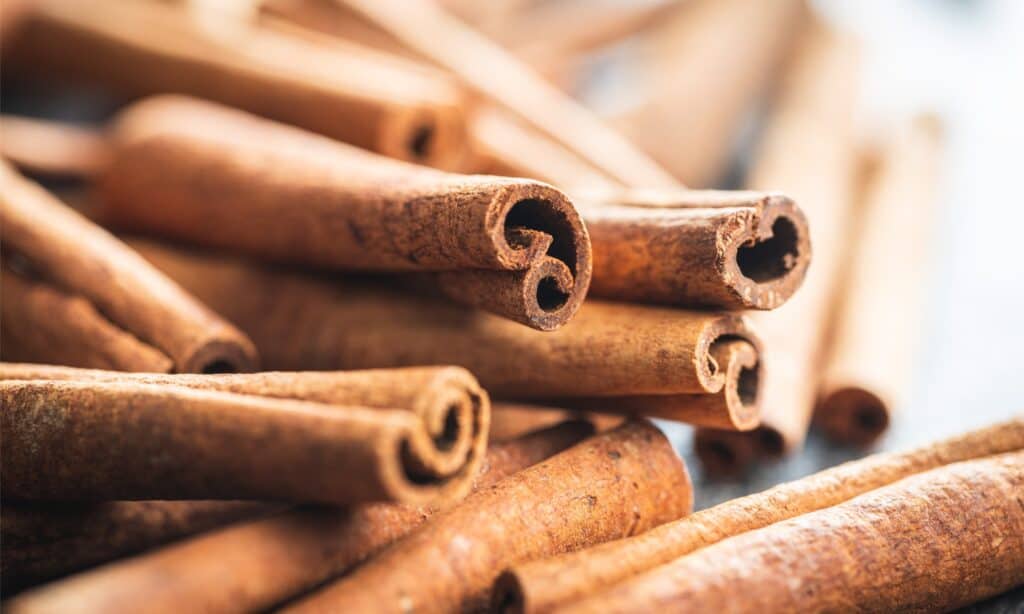
To use cinnamon as a skunk deterrent, sprinkle cinnamon powder around your garden or yard.
©iStock.com/jirkaejc
Cinnamon, a spice frequently used in baking and cooking, emits a potent aroma that skunks dislike, making it an efficient natural skunk repellent.
To use cinnamon as a skunk deterrent, sprinkle cinnamon powder around your garden or yard. Alternatively, create a cinnamon spray by combining the cinnamon powder with water and misting it around your property’s perimeter.
Peppermint
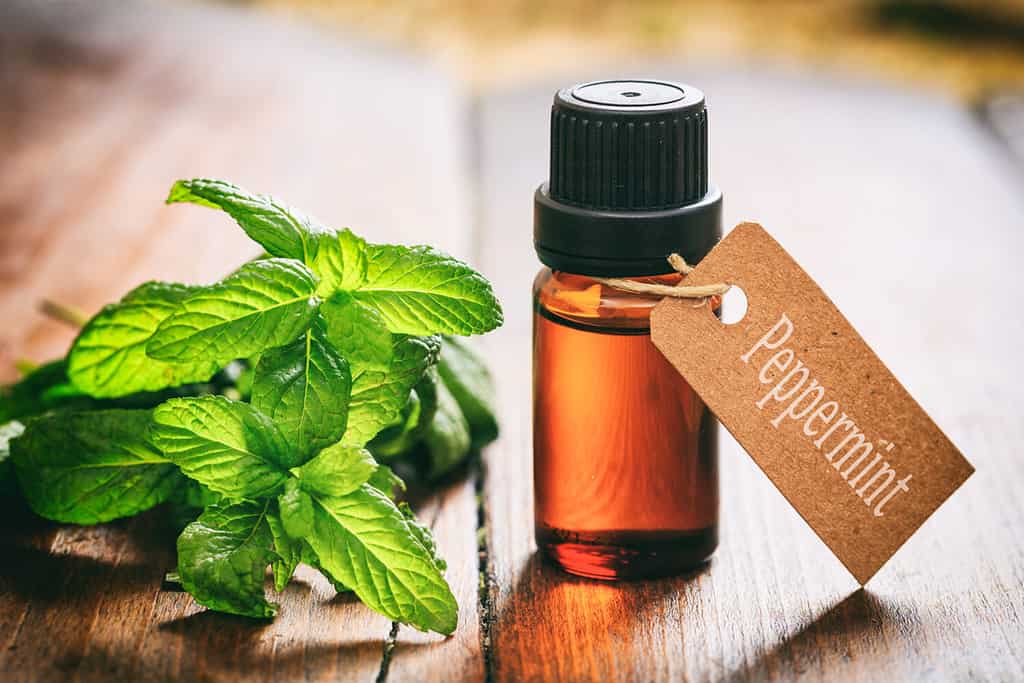
create a peppermint spray by blending peppermint oil with water and misting it around your property’s perimeter.
©rawf8/Shutterstock.com
Peppermint, a popular herb with a potent and invigorating fragrance, repels skunks. As a plus, it’s very pleasant to smell in any garden.
Plant peppermint around your garden or yard to use as a skunk deterrent. Alternatively, create a peppermint spray by blending peppermint oil with water and misting it around your property’s perimeter. You may also soak cotton balls in peppermint oil and leave them where skunks commonly enter your property.
Castor Oil
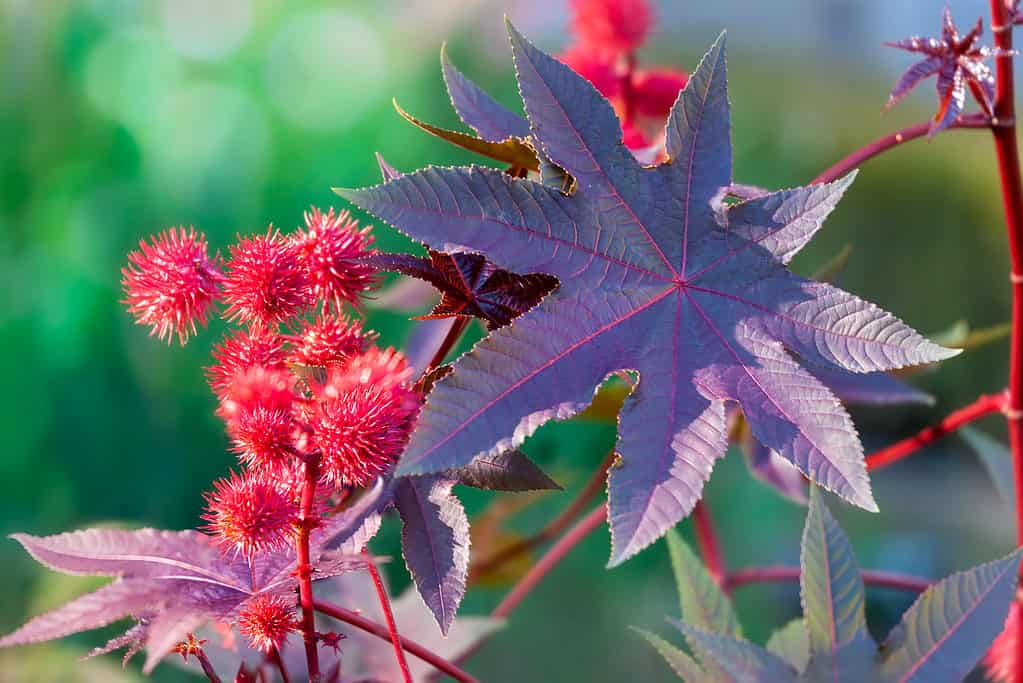
When mixed with dishwashing detergent and water, castor oil forms a highly effective solution for repelling skunks.
©iStock.com/TatianaMironenko
Skunks dislike the strong and pungent scent of castor oil, and when mixed with dishwashing detergent and water, it forms a highly effective solution for repelling skunks. The solution irritates the skunk’s nasal passages, causing them to avoid the area where the smell is present.
To make this mixture, dilute a quarter cup of castor oil and a tablespoon of dish-washing detergent in a gallon of water, and spray the solution around the perimeter of your property or in areas where skunks are likely to be present.
Soap Bars
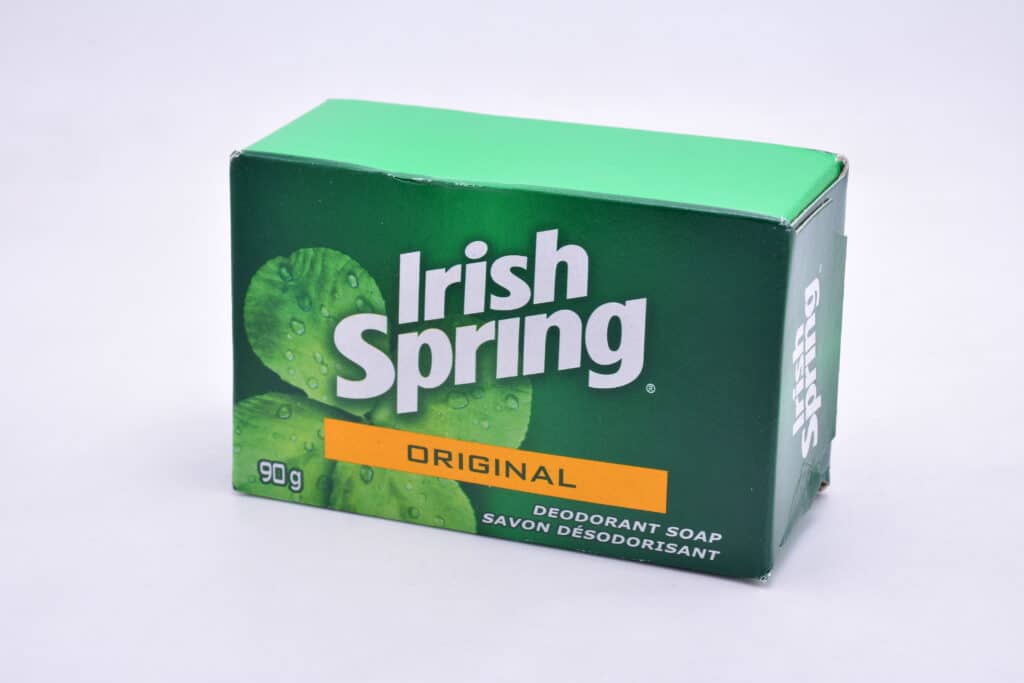
For whatever reason, skunks dislike the smell of certain types of soap bars.
©Walter Eric Sy/Shutterstock.com
Skunks dislike the strong and overpowering smell of certain types of soap bars. The soap bar smell irritates their keen sense of smell, causing them to avoid the area where the scent is present.
Place the soap bars around the boundaries of your property or in areas where skunks are likely to be present.
Jalapenos
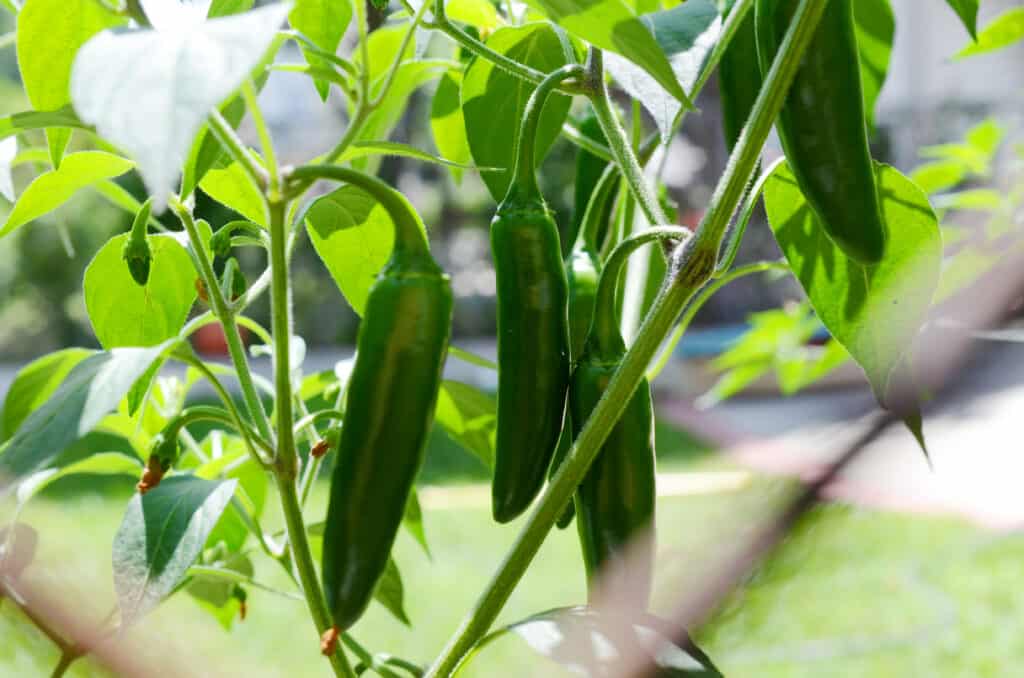
Cut up fresh jalapenos and place them around the perimeter of your property or in areas where skunks are likely to be present.
©Quang Ho/Shutterstock.com
Skunks dislike the spicy and robust odor of jalapenos. The spice in jalapenos irritates their nasal passages, causing them to avoid the area where the spicy scent is present.
To use jalapenos as a skunk repellent, cut up fresh jalapenos and place them around the perimeter of your property or in areas where skunks are likely to be present. You can purchase fresh jalapenos at most grocery stores or food markets.
House Deodorizers
Skunks dislike strong and overpowering smells, such as those produced by certain types of house deodorizers. The scent of deodorizers irritates their acute sense of smell.
To use a house deodorizer as a skunk repellent, choose one with a strong scent and spray or place it around the perimeter of your property or in areas where skunks are present.
Summary of 12 Smells That Skunks Absolutely Hate
Here are 12 Smells That Skunks Absolutely Hate:
| Rank | Smells |
|---|---|
| 1 | Ammonia |
| 2 | Mothballs |
| 3 | Citrus |
| 4 | Predator Urine |
| 5 | Spicy Peppers |
| 6 | Eucalyptus |
| 7 | Garlic |
| 8 | Cinnamon |
| 9 | Peppermint |
| 10 | Castor Oil |
| 11 | Soap Bars |
| 12 | Jalapenos |
The photo featured at the top of this post is ©
Thank you for reading! Have some feedback for us? Contact the AZ Animals editorial team.



